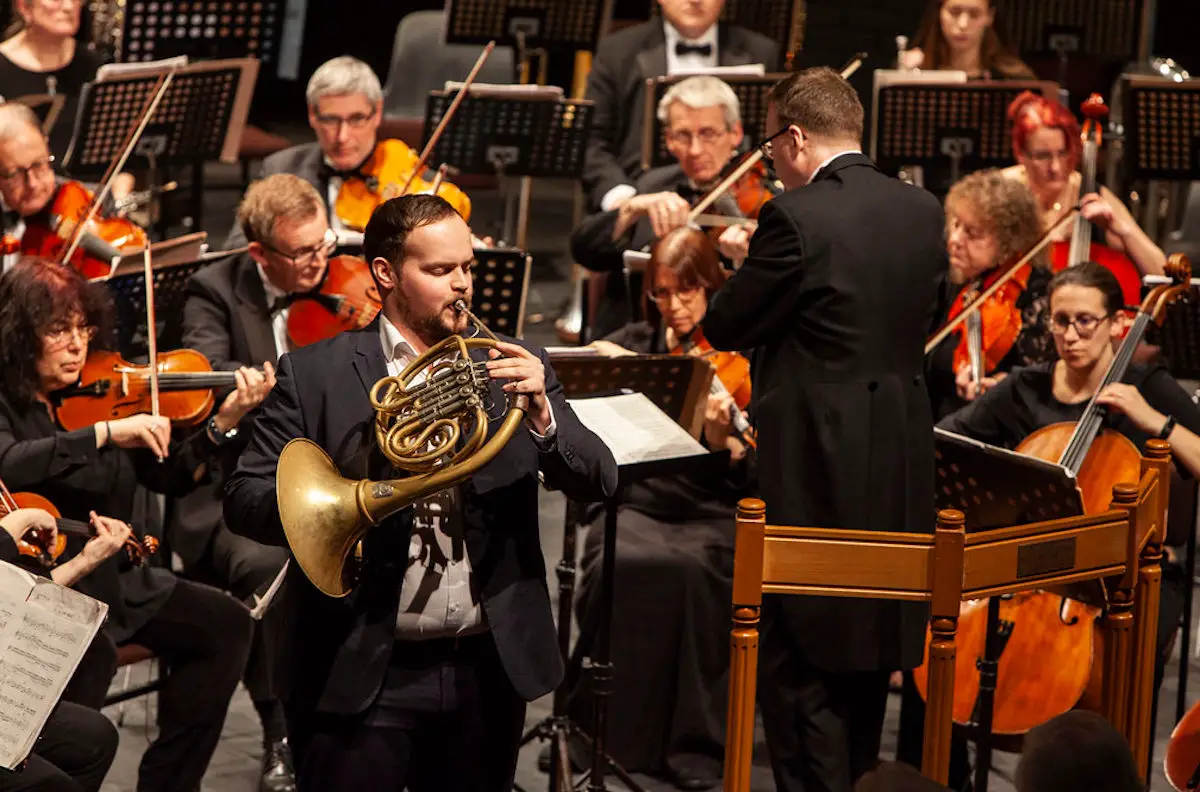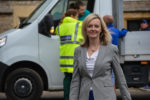Jonathan Dodd shares his review of the latest Isle of Wight Symphony Orchestra (IWSO) concert. Images with kind permission of Allan Marsh. Ed
Last Saturday I attended the second concert of the current season of the Isle of Wight Symphony Orchestra, on an unexpectedly mellow evening in January. The auditorium was crammed, and there was a buzz of expectation in the air as everyone settled down to listen.
This time there was to be a guest conductor, Cathal Garvey, instead of our redoubtable Jonathan Butcher. It turned out to be probably the most enjoyable IWSO concert I have attended, because of the variety and interest of the works played, and the enthusiasm and energy supplied by the orchestra, who were clearly enjoying themselves immensely.
Commissioned by ENSA
The concert started with a fantastic piece called ‘Street Corner’ by Alan Rawsthorne, of whom I had not heard. He wrote it during World War II, on a commission by ENSA, whilst serving in the Army. I was moved and astonished on two counts. Firstly because it was first performed in Holland in 1944 by John Barbirolli and the Halle Orchestra, presumably very soon after Holland was liberated.
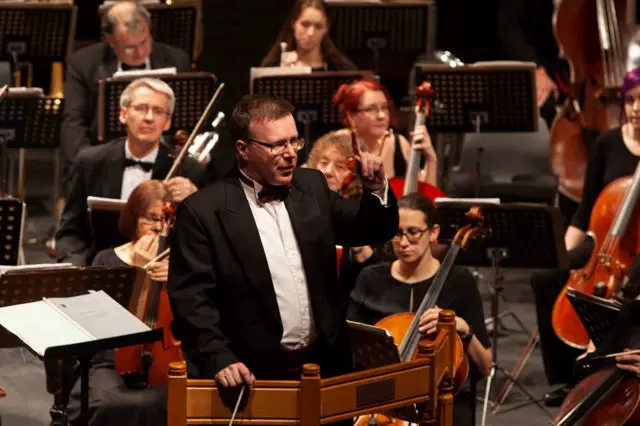
That would have been an event to remember. Secondly, the piece was written to depict musically a crossroads in the centre of a busy town on Saturday night, which would have been familiar to everyone, but not for years. It must have been wonderful to reimagine normal life returning by remembering how it used to be, and therefore how it would be again.
The piece contained several sections, busily reproducing the sounds and bustle and variety of activity, all the more remarkable for having to recreate it from memory. The orchestra clearly enjoyed their task, and injected lots of energy and enthusiasm into it. It was an excellent opening piece, and well deserving of another listen.
The Father of Czech Music
Mr Garvey then departed from the usual procedure by talking about each piece before it was played. He did so in an amusing and personal way, giving information or an outline of what the piece was depicting or the story it was telling, and the audience could tell how passionate he is about the music he conducts, and helping those without a programme to know what was coming.
The second piece was by Bedrich Smetana, from his work ‘Ma Vlast’ (My Homeland), and was called ‘Vltava’, the Czech name for the river that flows through Prague, on its way to Germany, where it’s renamed the Moldau.
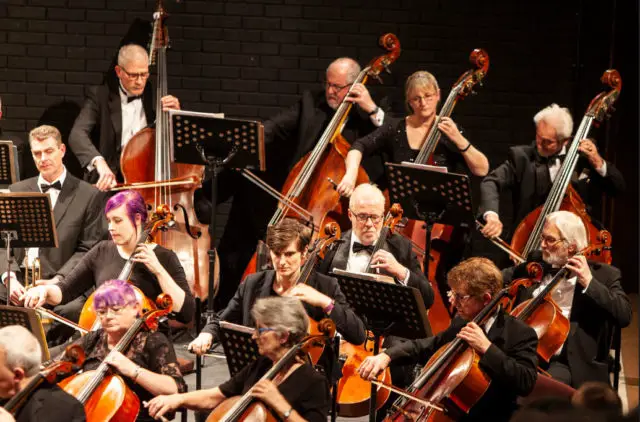
The sections of this piece reflect local folklore and the varying states of flow of the river, from placid lake to rapids, and finally majesty as it passes a castle and enters Prague. The theme is lovely and lilting, and recurs throughout, played by various instruments in different combinations, linking the sections.
It was beautifully rendered by all parts of the orchestra, and it was a real pleasure to listen to, whether imagining nymphs or rapids, or just dreaming along with the delights of the music itself. It was lovely.
A Gift to a Father
The third part was a Horn Concerto by Richard Strauss. He was very influenced by Mozart, and it was possible to hear that influence in the horn playing. Strauss wrote one at each end of his career, the first in 1883, when he was only 19. It was meant for his father to play, but he declined, possibly because he felt it would be too hard for him.
Our soloist, Joel Roberts, had no such difficulty. He commanded the concerto, playing beautifully in front of an attentive and expressive orchestra, producing those clear toes that the horn can make that send a shiver down my spine.
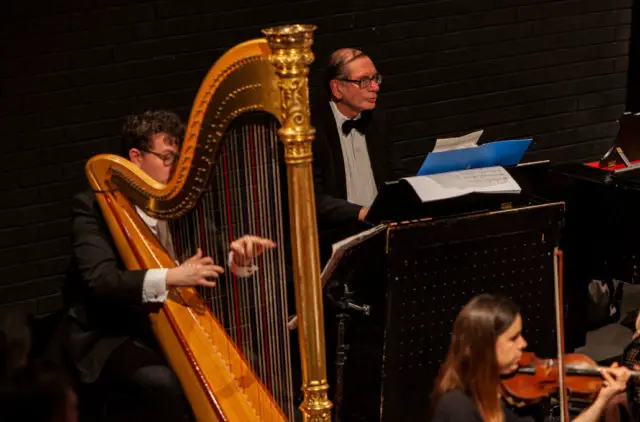
Each of the three movements continues from the previous one without a break, and it was very pleasant to sit back and listen to all involved produce a mature and sensitive rendering of this very popular concerto. Mr Roberts and the orchestra deserved the storm of applause after it ended.
A Perfect Fool
After the interval, we were treated to a ballet by Gustav Holst. I often forget that he wrote anything other than the Planets, so I was interested to hear this. He wrote an opera, which has been forgotten and unremembered ever since it was first performed. But the ballet has made a life for itself as a free-standing piece for orchestra, and deserves to be heard.
It follows a story about a princess who spurned all suitable suitors and fell for the eponymous ‘Perfect Fool’, who slept a lot. The music rises above the story, however, and is typically Holst, with his fantastic sense of rhythm, and his ethereal strings and quiet passages and sudden stops and crashes.
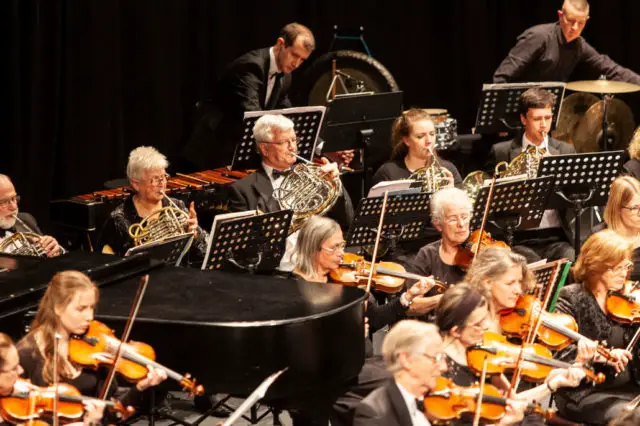
It was a wonderfully lively piece, giving all sections of the orchestra many chances to leap in and out of the action, which they all did with immaculate timing and control. It was a marvel to listen to, and I’m going to revisit it. The trombones and percussion were especially good, I thought.
The Firebird
Finally, it was the turn of the Firebird, by Igor Stravinsky. In my youth I found myself drawn to certain pieces of classical music, whilst I was exploring the world I was supposed to grow up into, and I discovered this by accident. I loved it from the first moment, and it has been with me ever since, but I’ve never had it played to me, so I was excited to hear it live.
I can understand why many people reacted so violently to Mr Stravinsky at the time, for exactly the same reasons that I loved about it so much. It felt new, and still does, and unique, and violent, and prehistoric, and somehow coming from the depths of the earth via all the archetypal myths and legends of the wild places – of the landscape and the heart, and it sang to me. But never so much as last Saturday night, when the musicians of the IWSO rolled up their sleeves, took a deep breath, and launched themselves into the maelstrom.
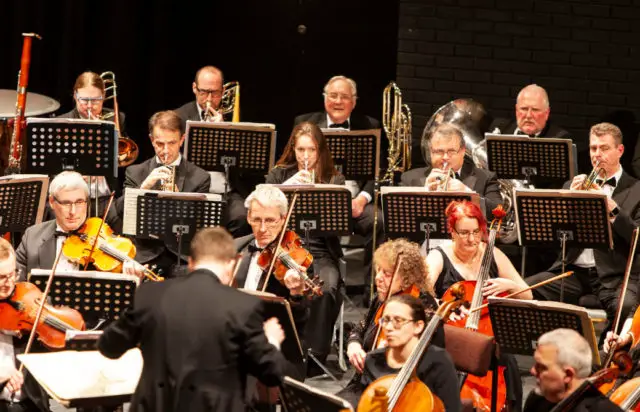
It starts so quietly, but with a sense of invisible tension, and draws you in through the power of Stravinsky’s music, as it goes from ominous to action-packed to romantic , through all the emotions, until it reaches its thrilling conclusion. The orchestra captured perfectly the visceral impact of this landmark work, and I was exhausted and exhilarated afterwards.
I suspect the whole orchestra was too. It was utterly marvellous. Every musician was so good that I would feel churlish to pick out any one of them. Thank you all for a memorable evening.
Next Concert
The next concert will take place at 7:15pm on Saturday 14th March.
It’ll start with the Caprice Bohemien by Sergei Rachmaninoff, and that’ll be followed by Pyotr Tchaikovsky’s 1st Piano Concerto, played by the estimable Viv McLean. That’ll be more than a treat.
After that the orchestra will play Mily Balakirev’s 1st Concerto. I don’t know that at all, and I’m looking forward to discovering that very much.
It’s going to be great, so get your tickets before it sells out – again! See you there.
Images with kind permission of Allan Marsh

